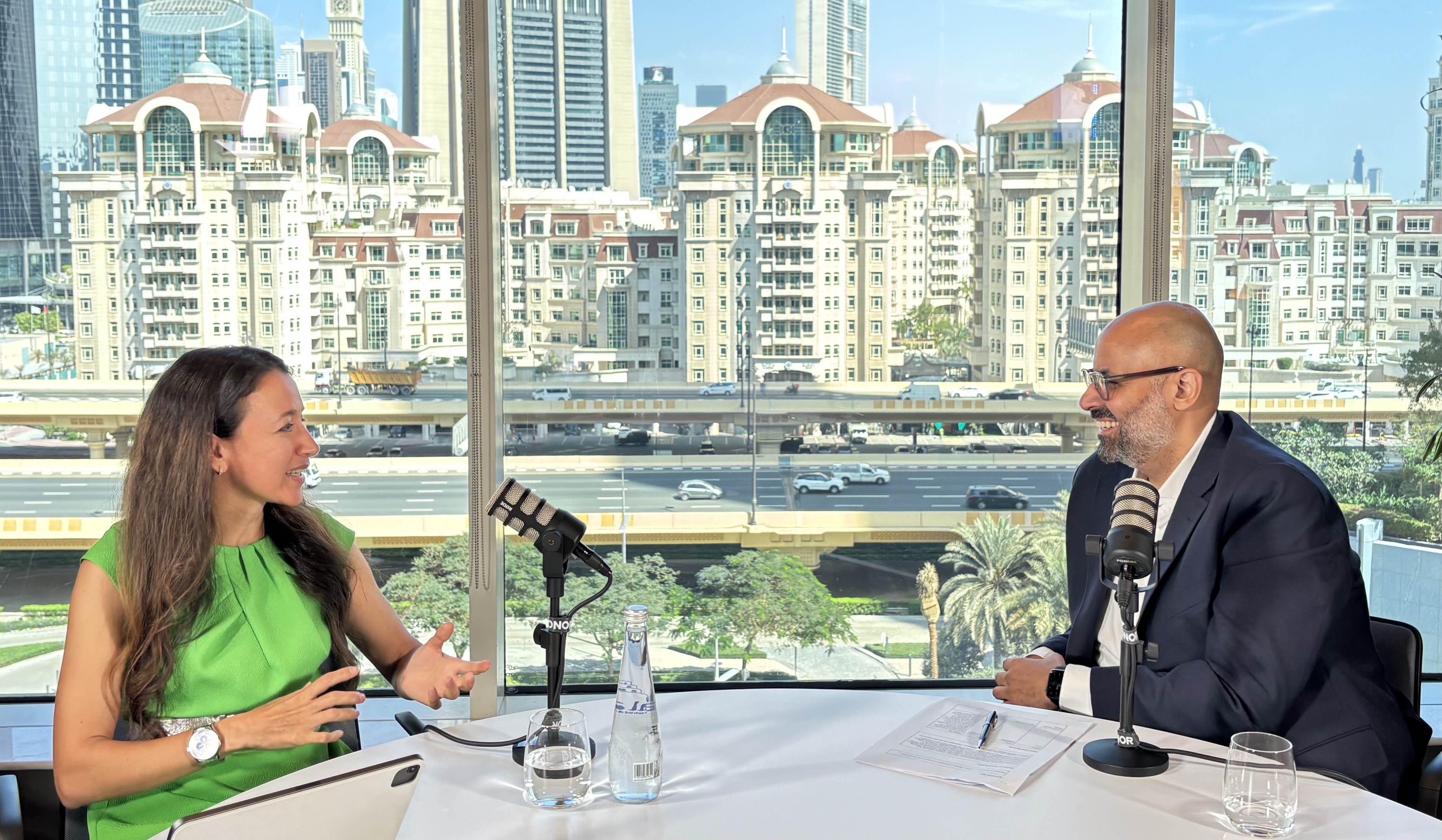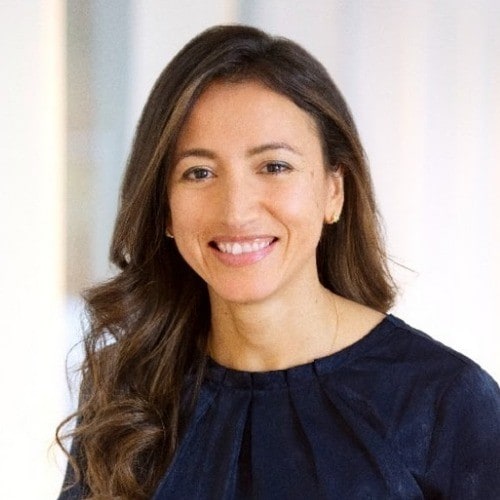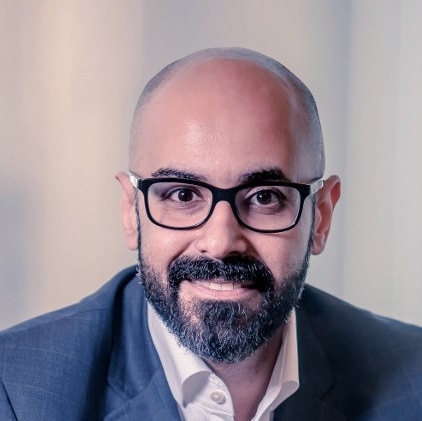Providing clarity on all things tax and legal
PwC partners and thought leaders provide valuable insights on tax reform, workforce considerations as well as regulatory and other tax and legal developments to help you prepare your business for the lasting impacts of events and the future. Our tax and legal podcasts provide you with the latest regulatory changes, technical updates, and commentary on hot topics to help you create your business strategy.


Can the tech sector grow responsibly without adding to the climate burden?
In this episode, Amal Larhlid, Partner at PwC Middle East, sits down with Ahmed Ameen Ashour, Chief Commercial Sustainability Officer at Microsoft, to talk about what it takes to decarbonise one of the world’s fastest-growing industries.
With digital infrastructure expanding rapidly across the Middle East, the discussion focuses on how tech companies can scale while staying on track with sustainability commitments. Ahmed shares Microsoft’s ambition to be carbon negative by 2030, and how this goal is shaping the company’s approach to data centre design, energy use, and AI-led efficiencies.
The conversation also touches on the complexities of modernising outdated systems, managing infrastructure differences across geographies, and why collaboration is key to making sustainability practical and achievable.
Patricia: This is Reimagining our Region, your go-to podcast for regional insights and trends.
Each episode brings together expert discussions on the challenges and opportunities shaping the Middle East. From economic shifts to emerging technologies.
I am Patricia Keating, Senior Manager of PwC Middle East.
Amal: And I am Amal Larhild, Partner at PwC Middle East
We'll explore how businesses in the Middle East are adapting to remain competitive, focusing on business model reinvention, sustainable growth and the transformation needed to thrive in an evolving landscape.
Welcome to today's episode where we are focusing on the decarbonisation of the tech industry. As the Middle East accelerates its digital transformation, the environmental impact of the tech sector becomes an increasingly urgent challenge. From achieving energy efficiency to integrating renewable energy in the design of green data centres, there is a lot to explore.
To help us unpack this, I am delighted to be joined by Ahmed Ameen Asher, Microsoft Chief Sustainable Commercial Officer. Ahmed, I'm absolutely delighted to have you here. Welcome.
Ahmed: Same here.
Amal: Obviously, when we talk about the decarbonisation of the tech sector, there are challenges and opportunities. Can you talk us through the experience of Microsoft and how you see both sides of the same coin?
Ahmed: Thank you very much, Amal. It's always a pleasure to be here with you in the PwC office. Microsoft has over a decade of focus on sustainability and our own emissions. We started slowly by trying to understand what our carbon emissions are, as a starting point. But then throughout the journey, we became more confident around our ability to really control our emissions and put some more strong plans.
The real highlight came in 2020 when we did a commitment, not a pledge, but a commitment that by 2030 we would be carbon negative, water positive and a zero-waste company.
Now, during a commitment like this, we found out that it's very critical that you measure as you go. We see a lot of organisations and a lot of pledges saying that we will be net zero by then.
But if we were not really doing the measurements and doing the data analysis and getting the insights, it's extremely difficult to really maintain these commitments. That's one of the things that we've really learned. Since then, we've been committed that on annual basis, we released our sustainability report where we highlight what are the challenges we've seen so far and what are the opportunities that we can help us accelerate.
Microsoft is a company that serves customers. And as in the emissions, terminology, there's scope three, which is in the supply chain. We are the largest supplier of IT to many of our customers. It's our duty also to make sure that the IT that we are delivering is also green. It's a big opportunity for us to make sure that whenever we're developing our data centres, we're making sure that we're leveraging renewable energy.
We're trying as much as we can to leverage any heating that's coming out to be used in other resources, recycling most of the materials, while also making sure that from a manufacturing point of view, this is being tackled.
Over the last decade we've learned a lot from our journey. What we're trying to do now is how can we leverage these learnings to help our customers in their own sustainability journey.
Amal: Yeah. you mentioned that you are taking also the customers on the journey with you. But I guess that the journey will also be paved with several challenges. Right? Whether it's for the implementation of your plans or the challenges that you see your customers facing, and what other strategies we could put in place to tackle those challenges?
Ahmed: That is very true, Amal. There are plenty of challenges in this field. This was one of the biggest learnings that we had across the ten years, there're plenty of gaps in this area. Even if you have the right commitment, there are challenges that you will face to be able to deliver on these commitments.
And what we really nailed as the main challenge is data. There is enormous amount of data coming out of all the systems that you have in your organisation, from your ERP, from your building management system, from your fleet management system. The data is there, the insights are there, but it's enormous amount of data in completely different standards, in different databases, not connected, not integrated.
For you to be able to take decisions and really prioritise what decisions should I take, that will have the greatest impact? You need this proper insight. Also, when you do any changes, you want to get an idea on the impact of that change. You cannot wait for a full year to see the sustainability report to see if that really worked or not.
You need quick insights around that.
We discovered that data is the most critical aspect, within the sustainability that requires unlocking. And from that, we embarked on a journey of developing what we call now the ‘Microsoft Cloud for sustainability’, which is a suite of solutions focused on standardising the data and minimising the interaction, while integrating other components that we can have one common data platform for all the sustainability data for us, as well as for our partners.
That's why we work very closely with partners yourself to make sure that we deliver to the customer a consistent data strategy for their sustainability agenda.
Amal: And we do really value our alliance with Microsoft. And, together helping our, clients tackle these challenges.
Ahmed, we can't really talk about technology without mentioning, not the elephant in the room or the algorithm in the room, AI. What is the role of AI in all of this?
Ahmed: Well, AI is a large contributor. We all know, Microsoft embarked also on a whole data and artificial intelligence journey a couple of years ago with a massive investment in OpenAI. You can see today that our AI, which is Copilot being integrated in many of our solutions.
Now, it's interesting because AI adds a lot of pressure also in terms of emissions, because it requires a massive compute, much more than what we expected when we did our pledges and commitments. It's adding another dimension, of course, that we need to develop. And that again requires our partners in terms of hardware and consulting and advisory.
We need to develop new ways of delivering AI technology with much less compute powers. We need to redevelop our data centres, and by doing that, we’ll also be able to deliver AI to our consumers with much less emissions. Now that's one angle, which we call the green IT. But the other angle is also that many of the challenges in climate change for humanity have been a challenge.
We've been saying that we want to maintain the temperature of the planet below the 1.5 mark for years, and unfortunately, we're not seeing much hope. In fact, this year we're seeing all the forest fires, we're seeing earthquakes, we're seeing all the natural disasters. We definitely need help as humanity. And it seems that help might be only coming from artificial intelligence.
Today, with AI, we're able to better detect things like where fires may occur or where we need to send the right teams, so we can also help manage climate risk. Artificial intelligence is going to play a much bigger role really in the challenge of climate change, and it's becoming much more critical in this area.
Amal: Thank you very much, Ahmed. Given that both of us are actually here in the Middle East. Maybe let's zoom on the Middle East. What are the differences between how AI, the tech sector, the ESG agenda is progressing in the Middle East compared to other parts of the world?
Ahmed: Yeah, very relevant, of course. Being in this region for over 18 years now, one thing I've learned is that this is a region that really challenges our capabilities. And they're always visionary in terms of, what can we do next and how we can innovate more.
I think in the Middle East, there has been a very big focus. It's part of the vision of most of the countries in the region. It's a key topic for the leadership team; they see it as essential to representing these countries and their economies in the future. Not only from the perspective of climate change and associated risks, but also as an opportunity, particularly in renewable energy and emerging energy sources that can help boost the region’s economies.
We've always been challenged by the leaderships within the region in the Middle East. We have several partnerships and together we work on serving many of these customers to make sure that we really help them achieve that innovation that they require.
Amal: I do agree completely, and I think there are a lot of things that the rest of the world could learn from the region. I think the balance is shifting. And, it is really interesting to share best practices.
You've been here for 18 years. I've been here for only 18 months and let me tell you, what I have seen in terms of pace of change and the willingness to embrace change, to embrace AI, to embrace technology but also to make progress on the decarbonisation agenda and ESG more broadly, has been incredible compared to Europe, for example.
The other element is around regulation and policy. We know that the Green Deal in Europe is driving several pieces of legislation and regulation that is also pushing businesses to decarbonise and act.
Here in the region, there is a different approach. We see businesses taking the lead, but also governments being visionary and not copying what is out there in other parts of the world, but actually coming up with visions that are, tailored to the region.
Ahmed: I totally agree. I think, especially when you mentioned the European Union, there are very clear strategies around how they would really need to drive proper ESG disclosure, which is the CSRD. But it also represents a big challenge because it requires massive resources from all these organisations to be able to help with that.
That's also an area that Microsoft had focused on; leveraging our cloud for sustainability, would make it a bit easier for these organisations, to do that disclosure. Now, as you rightly said in the Middle East, here they are keen, but they are not keen on having these regulations for having the regulations or copying the regulations that might not be relevant as much as here.
In fact, they're looking at sustainability in terms of an opportunity - much more than ‘I need to regulate this to be able to have the right visibility and to reduce my carbon emission’ and so on. Which is, I think, a very innovative way. Because the moment you look at it as an opportunity from a business point of view, it becomes easier to allocate resources that look at the investment. And it's much easier within the private sector to approach any regulation as more of an opportunity, as opposed to a regulatory obligation.
Amal: I absolutely I can't agree more, actually. The harmony and the connection between the sustainability agenda more broadly and the business agenda are very much aligned more than other parts of the world, where sometimes there is a little bit of tension, or it is more a compliance rather than driving growth.
Thank you very much, Ahmed.
We are excited actually, to continue this journey together with you.
That's a wrap for today. If you found this conversation insightful, don't forget to subscribe, share and continue the discussion with us. Let's keep building a more sustainable future, one informed decision at a time.
Hosts

Amal Larhild
Partner | Tax and Legal Services
EMEA Sustainability Leader for Governments, PwC Middle East
Guests

Ahmed Ameen Ashour,
Chief Commercial Sustainability Officer at Microsoft



© 2017 - 2026 PwC. All rights reserved. PwC refers to the PwC network and/or one or more of its member firms, each of which is a separate legal entity. Please see www.pwc.com/structure for further details.




